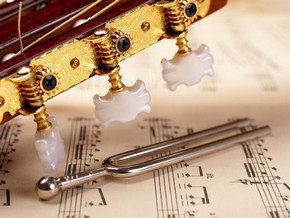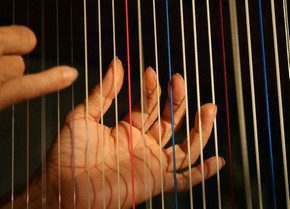
Diagnosis of children’s musical abilities: how not to make a mistake?
Contents
 There has always been an ambiguous attitude on the part of parents and teachers to the question of the need and benefits of music education. But the most important aspect of this problem is the task of discovering musical ability and identifying the many common misconceptions on this topic.
There has always been an ambiguous attitude on the part of parents and teachers to the question of the need and benefits of music education. But the most important aspect of this problem is the task of discovering musical ability and identifying the many common misconceptions on this topic.
We often hear parents complaining about their child’s lack of hearing for music and their opinion about the uselessness of music lessons. Do parents know about the diagnosis of musical abilities and the psychology of the development of musical inclinations in children?
Music needs to be listened to, but most of all… heard!
Musical abilities cannot exist in isolation. The complex of musical abilities receives its development in the process of children’s musical activity.
Musical inclinations are a multifaceted phenomenon. It combines both specific physiological parameters, such as hearing, rhythmic sense, motor skills, etc., and an inexplicable subjective phenomenon called musical flair. Moreover, the second category is no less important than the first: physiological data ensure the success of the technological process of mastering musical works, and musical intuition emotionally enlivens the performance, leaving an unforgettable impression on the listeners.
The basis of the desire for musical studies is precisely musical flair. A child who does not show interest in music will find it difficult to overcome the difficulties of mastering a particular instrument. It is possible to develop an ear for music, motor skills, a sense of rhythm, coordination, it is possible to achieve positive results in voice production, it is easy to decide on the choice of a musical instrument, but the ability to intuitively feel music is not always and not everyone can develop and improve.
My child can’t sing! Why should he study music?
According to the average person, hearing is associated with pure vocal intonation. This is one of the most common mistakes for self-diagnosis of children’s musical abilities. Many, having listened to their baby’s singing, reach a verdict that “a bear stepped on his ear.”
However, it should be remembered that the ability to master a voice is a specific skill. Some people have a natural gift for this ability, others work to develop it for many years, and often, at the end of the “coolest” career, they never master it. But there are often children who are unable to control their voices, but who can hear music perfectly. Many of them go on to become wonderful professional musicians.
“Technology” for determining the musical talent of children
What should parents do to identify musical talent in their children? The primary condition when working on the process of diagnosing children’s musical abilities is listening to a wide variety of, preferably academic, music. You should definitely attend classical music concerts with your child, carefully choosing programs that consist of short works – let them be the most famous classical musical works or some thematic selection, for example, a selection of musical works about nature.
Listening to different instruments, musical groups and performers from different eras is useful. Children need to be given the concept of musical instruments and genres in a form that is accessible and understandable to them.
Very It is important to monitor your baby’s reaction – the most important indicator of natural musical data. A child with a hidden reserve of musical abilities listens attentively to a melody or favorite recording, dances or, freezing, listens to the tune, shows great interest and a strong emotional attitude.
Artistry and expressiveness when reading poetry, which is also one of the types of performance, can be evidence of emotionality and a penchant for artistic self-expression in musical works. And finally, oddly enough, the last, but by no means the first, way to diagnose musical abilities is a hearing test.
With the right professional attitude towards the process of improving abilities, musical ear can develop. After all, musical inclinations are both an obvious natural given and have unexpected dynamic tendencies. You just need to remember that the priority criterion for choosing music education is the desire of the child himself, his love for music. Adults need to reveal this multifaceted world, emotionally filling the child’s desire for development, and then he will overcome the most difficult obstacles on the path to mastering any profession.




